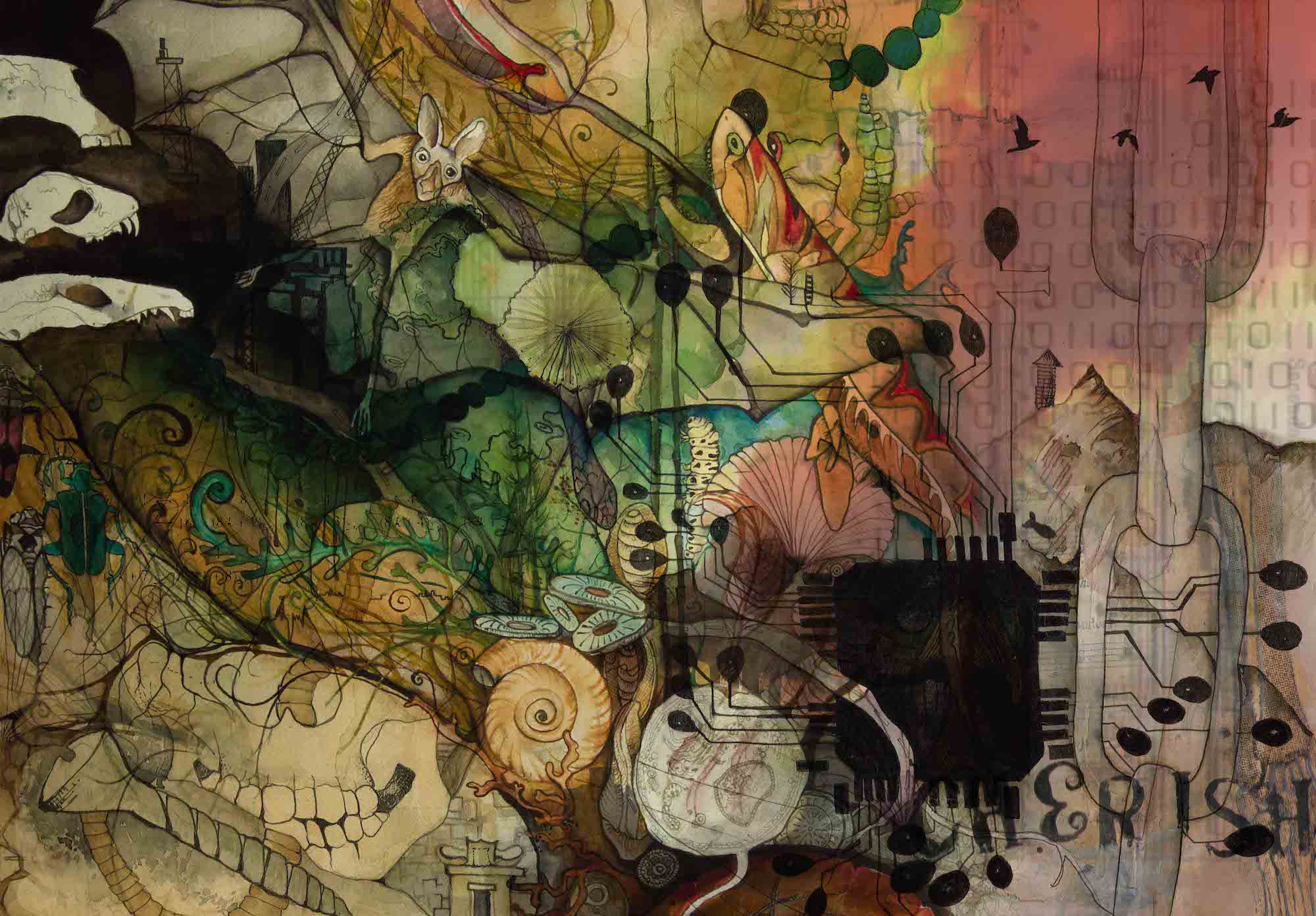Search results
Projects
Addressing Gender-Based Violence in Aged Care & Disability Support Services in Individualised Settings
Building stakeholder capacity in Victoria

The growing community concern around violence in disability support and aged care services promoted RMIT researchers to consider ways to improve the lives of both service users and workers in home and community-based support and care. Through a series of workshops, this project provided an opportunity for Victorian advocacy groups, unions and researchers to identify common concerns and interests around gender-based violence in both individualised aged care and disability support services, and consider ways to tackle these issues.
This project led to a 2020 Scoping Study for Worksafe Victoria see report here.
If you would like to get involved with this project, fill out the form below or reach out to project leaders via the contact info provided alongside each bio.
People
Sara Charlesworth
Distinguished Professor
School: Management
Sara Charlesworth is Professor of Work, Gender & Regulation and Deputy Head of School, (Research & Innovation) in the School of Management. She is an executive member of the Centre for People, Organisation & Work in the College of Business. Sara has published and presented widely in a wide range of academic, policy and community fora and has been involved in a number of key gender equality policy reviews and debates. She was a panel member on the 2012 ACTU Independent Inquiry into Insecure Work, and an advisor to the Australian Human Rights Commission on their 2014 Pregnancy and Return to Work National Review and 2018 National Sexual Harassment Prevalence Survey.
In 2017 Sara was appointed to the Equal Workplaces Advisory Council, a founding reform of the Victorian government’s Gender Equality Strategy. She is currently a member of the Victoria Police VEOHRC Review Academic Governance Board, on the Steering Group of the Migrant Workers Rights Campaign and co-convenor of the Work+Family Policy Roundtable. Sara is a Fellow of the Future Social Services Institute and is on the editorial board of the Journal of Industrial Relations.
Sara’s research interests centre on gender inequality in employment at the labour market, industry and organisational levels. She has undertaken a number of Australian Research Council-funded projects. Much of her recent research has focused on paid care work. Together with A/Prof Deb King (Flinders), she completed a large three year Department of Health-funded project, ‘Quality Jobs and Quality Care: Improving work practices to deliver quality aged care jobs & aged care services for older Australians’, in partnership with Brightwater Care, HammondCare, Helping Hand and United Voice.
Young people and the Anthropocene
Critical perspectives for well-being, resilience and enterprise

The social sciences and humanities must critically engage with the debates about the Anthropocene since humans are by definition driving the issues facing the these planetary-wide changes and the consequences that ensue. We need to find new ways of thinking through and understanding the unfolding crisis of planetary environmental systems by developing divergent forms and methods of communicating.
This project has as its aim instigating an international agenda for collaborative knowledge production and exchange that centre around well-being, resilience and enterprise for children and young people around the globe.
You can find out more about Young people and the Anthropocene here.
If you would like to get involved with this project, fill out the form below or reach out to project leaders via the contact info provided alongside each bio.
People
Peter Kelly
Professor
School: Education
Peter Kelly is Professor of Education and Head of UNESCO UNEVOC at RMIT University. His recent former role was as Associate Dean, Research and Innovation, in the School of Education at RMIT. Previous positions include at Edge Hill University (UK), Deakin University, Monash University, the University of Queensland (UQ).
Kelly is a social researcher who has published extensively on young people, social theory and globalisation. His current research interests include a critical engagement with young people and new cultures of education/work/democracy in the context of the aftermath of the Global Financial Crisis, and with the challenges associated with the emergence of the Anthropocene. He is currently the lead CI on an ARC Discovery Project (DP 170100547) Art Based Social Enterprises and Marginalised Young People’s Transitions.
With colleagues, Kelly leads a research program titled Young People’s Well-being, Resilience and Enterprise: Critical Perspectives for the Anthropocene: https://youngpeopleanthropocene.org/
Kelly has published extensively on young people and the practice of youth studies. His books include: Working in Jamie’s Kitchen: Salvation, Passion and Young Workers (2009), The Self as Enterprise: Foucault and the “Spirit” of 21st Century Capitalism (2013), The Moral Geographies of Children, Young People and Food: Beyond Jamie’s School Dinners (2014), A Critical Youth Studies for the 21st Century (2015), Young People and the Aesthetics of Health Promotion: Beyond Reason, Rationality and Risk (2016), and Neo-Liberalism and Austerity: The Moral Economies of Young People’s Health and Well-Being (2017). He has two recently published books: Rethinking Young People’s Marginalisation: Beyond neo-Liberal Futures? (2018), Young People and the Politics of Outrage and Hope (2018).
News and updates
No results
People
Peter Kelly is Professor of Education and Head of UNESCO UNEVOC at RMIT University. His recent former role was as Associate Dean, Research and Innovation, in the School of Education at RMIT. Previous positions include at Edge Hill University (UK), Deakin University, Monash University, the University of Queensland (UQ).
Kelly is a social researcher who has published extensively on young people, social theory and globalisation. His current research interests include a critical engagement with young people and new cultures of education/work/democracy in the context of the aftermath of the Global Financial Crisis, and with the challenges associated with the emergence of the Anthropocene. He is currently the lead CI on an ARC Discovery Project (DP 170100547) Art Based Social Enterprises and Marginalised Young People’s Transitions.
With colleagues, Kelly leads a research program titled Young People’s Well-being, Resilience and Enterprise: Critical Perspectives for the Anthropocene: https://youngpeopleanthropocene.org/
Kelly has published extensively on young people and the practice of youth studies. His books include: Working in Jamie’s Kitchen: Salvation, Passion and Young Workers (2009), The Self as Enterprise: Foucault and the “Spirit” of 21st Century Capitalism (2013), The Moral Geographies of Children, Young People and Food: Beyond Jamie’s School Dinners (2014), A Critical Youth Studies for the 21st Century (2015), Young People and the Aesthetics of Health Promotion: Beyond Reason, Rationality and Risk (2016), and Neo-Liberalism and Austerity: The Moral Economies of Young People’s Health and Well-Being (2017). He has two recently published books: Rethinking Young People’s Marginalisation: Beyond neo-Liberal Futures? (2018), Young People and the Politics of Outrage and Hope (2018).
Interdisciplinary conservation scientist, Senior Research Fellow, NESP Threatened Species Recovery Hub; Senior Lecturer, School of Global, Urban and Social Studies; ICON Science Research Group, Centre for Urban Research, RMIT University, Melbourne
Georgia is an ecologist and conservation scientist. She is a Senior Research Fellow in RMIT’s ICON Science Research Group and Centre for Urban Research, and Senior Lecturer in the School of Global, Urban and Social Studies, where she teaches Ecological Foundations of Planning. For over a decade, she has conducted research that addresses the critical challenge of conserving and enhancing biodiversity in urban environments. Her protocol for Biodiversity Sensitive Urban Design, codeveloped with Prof Sarah Bekessy, was a finalist in the Banksia Sustainable Cities Award 2016. Georgia has contributed to and led projects on biodiversity sensitive urban design for greenfield and urban renewal development projects, with local government (City of Melbourne), industry (GHD) and philanthropic (The Myer Foundation) organisations. She also co-leads projects for the National Environmental Science Program’s Threatened Species Recovery Hub and the Victorian Department of Environment, Land, Water and Planning that aim reconnect people with nature in a way that fosters care and stewardship for nature. She is a CI on a current ARC Linkage Project (Designing green spaces for biodiversity and human well-being), with project partners the City of Melbourne, ARUP, Greening Australia and Phillip Johnson Landscapes.
Interdisciplinary conservation scientist; ARC Future Fellow; Professor, ICON Science Research Group, Centre for Urban Research, RMIT University.
Professor Sarah Bekessy leads the Interdisciplinary Conservation Science research group at RMIT University. She is interested in the intersection between science and policy in environmental management and is currently involved in an interdisciplinary range of research projects, including an ARC Future Fellowship titled ‘Socio-ecological models for environmental decision making’ and an ARC linkage project titled ‘Designing green spaces for biodiversity and human well-being’. She leads projects in two National Environment Science Program Hubs (Threatened Species Hub and Clean Air and Urban Landscapes Hub) and is a Chief Investigator in the European Commission-funded project Urban Greenup, which seeks to evaluate nature-based solutions for cities. She co-developed the Biodiversity Sensitive Urban Design protocol that is now being used by numerous developers, governments and non-government organisations to design innovative urban biodiversity strategies.
